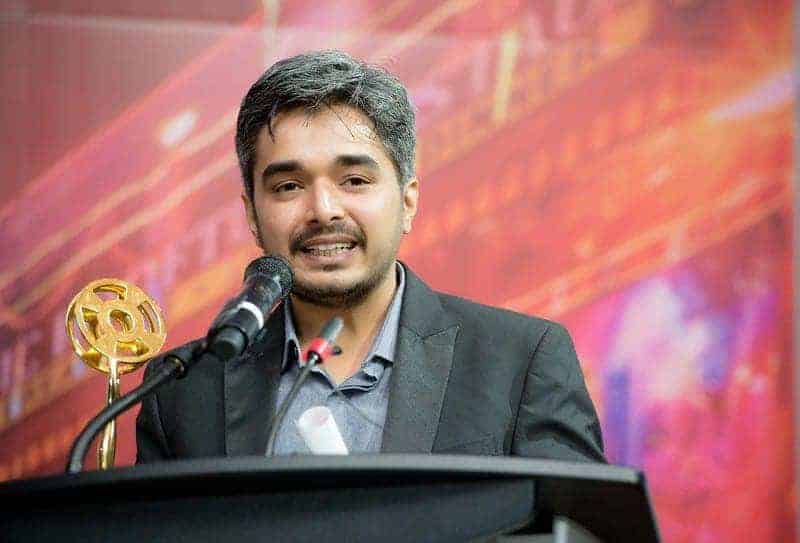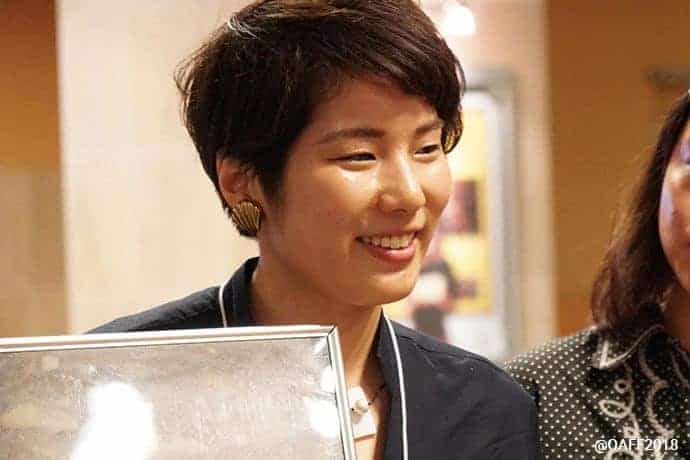Nishil Sheth hails from Bangalore, India. He completed his engineering and moved to pursue cinema by studying Editing at Flash Frames Visuals, Bangalore. Soon after he completed his engineering, he pursued Direction at Whistling Woods International, Mumbai. He has written, directed and edited short films and corporate videos. Bhasmasur is his first feature film.

On the occasions of Bhasmasur screening at Bagri Foundation London Indian Film Festival, we speak with him about the inspiration behind the movie, Rajasthan and India in general, the role of women in the country, his cooperation with the cast and crew, and other topics.
What was the inspiration behind Bhasmasur? In general where do you draw inspiration from for your movies?
Bhasmasur was primarily inspired by an article I had read in a daily. I did not think it would translate into a film. After a meek attempt at making a three-minute short on the same, the story still nagged me.
That's when I got in touch with Raghav Dutt, the co writer of the film. Initially, I came in only with the characters of the father and the son. Raghav was instrumental in bringing the character of Bhasmasur to life and then it was drafts after drafts from there.
It's hard for me to say from where I draw inspiration from in general, but particularly in Bhasmasur's case, I had seen Walter Salles' “Abril Despedaçado” which left a profound impact on me.

The film paints a very dark picture about the difficulties of living in Rajasthan. How close to reality is the story? Are episodes like the one with the loan shark and the one in the finale of the film frequent?
I don't think these issues are limited only in Rajasthan, it's all across the country, only differing in numbers. We chose Rajasthan primarily, since it provided this aridness in the frame, which we felt would add to the sense of isolation and at the same time make the frames much more picturesque.
The widowed aunt seems to have very little say in the decisions Dhaanu makes. Is that the case with women in the area? Also, during the conversation she has with Dhaanu, has she actually realized what is going to happen to Tipu?
Though things are definitely changing on this front, in a patriarchal society like ours, gender bias still very much exists. The aunt is the voice of reason, Dhaanu ignores this, and remains headstrong in what he believes is best. I personally don't think she realizes then, but that's something I guess everyone will have a different take on by the end of the film.
For a large part, the film functions as a road movie. Why did you choose this approach?
The story is primarily the journey the trio undertakes from the village to the city, so there was no escaping the road movie genre. Also with a limited budget like ours, and it being a linear narrative, the change in locations and short scenes added to the dynamism and scale of the film

Shrish Tomar's cinematography is outstanding, Can you give us some details about the way you cooperated and the locations the film was shot at? Where there any memorable episodes during the shooting? Good or bad.
Shrish is an asset to any team he is a part of. He possesses a keen eye and this really helped us shoot the scenes, not only at face value but also helped bring out the relationships between characters, as there are few dialogs in the film.
Karan Kadam, the producer was instrumental in getting the locations for the film at great ease. From ther,e Shrish and I began zeroing down on the locations and once it felt viable, we began pre production on the shooting front.
I feel the behind the scenes could have been a movie in itself. From struggling in the sweltering dry heat, to working with kids and a donkey. We faced a new problem everyday. I was very fortunate to work with a team who stuck together in spite of all the issues we faced on a daily basis.
How was the casting process like for the film? How did you guide Mittal Chouhan for his role as Tipu, and how different was your cooperation with him in comparison with Imran Rasheed?
The casting and workshop was done by Trimala Adhikari. We felt a non actor could make Tipu's performance more rustic and nuanced. We made Mittal spend time with Bhasmasur and Dhaanu before shoot, to make him comfortable. However, all credit must go to Trimala, Pavan, the editor and Yarik, the sound designer who helped shape his performance in the film.
Working with Imran bhai on the other hand was cakewalk. Despite of this being our first film together, he was very easy to work with and kept the morale high through the tough shoot.
What is your opinion of Hindi cinema at the moment? Can you give us some details about your future projects?
I think we have some very good work coming out from the country and not just Hindi cinema. Filmmakers are exploring many different themes and narratives now, which earlier was primarily love stories.
Today, it's possible for filmmaker's like us to make films on shoestring budgets. I sure wish the distribution of indie films got easier. But it's definitely a great time to be making films.
I am currently working on the next film titled ‘Given', written by Shivam Sharma. Which is still at a nascent stage of pre production.














